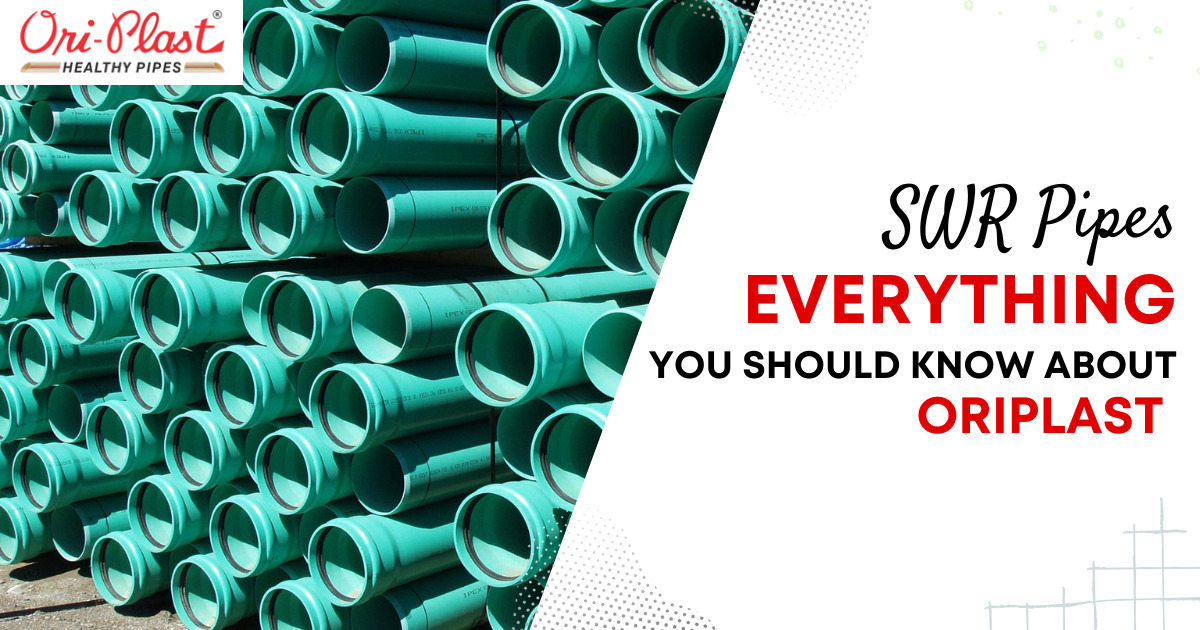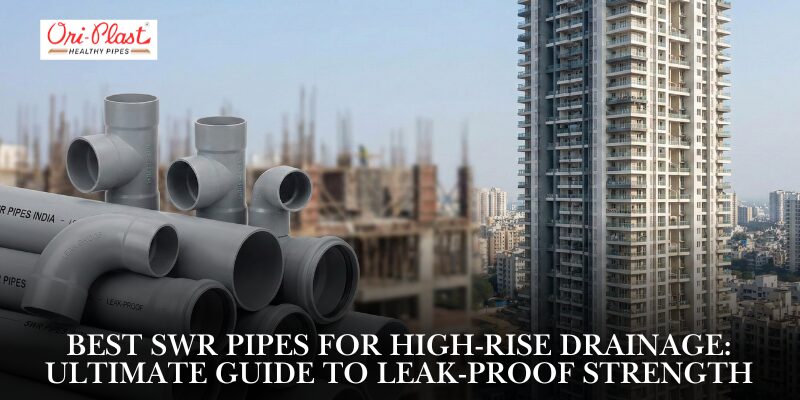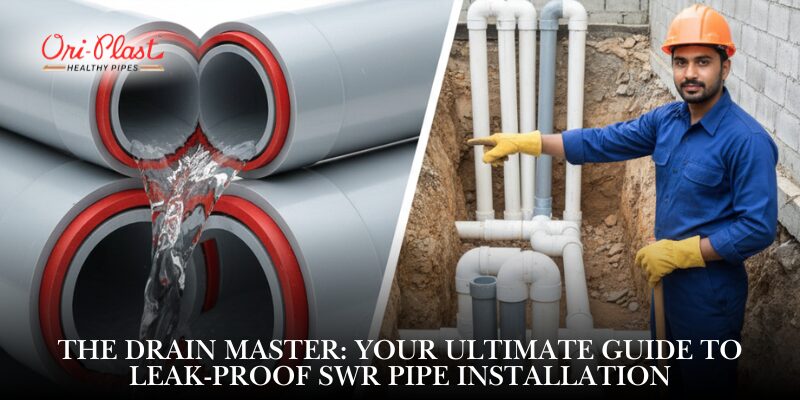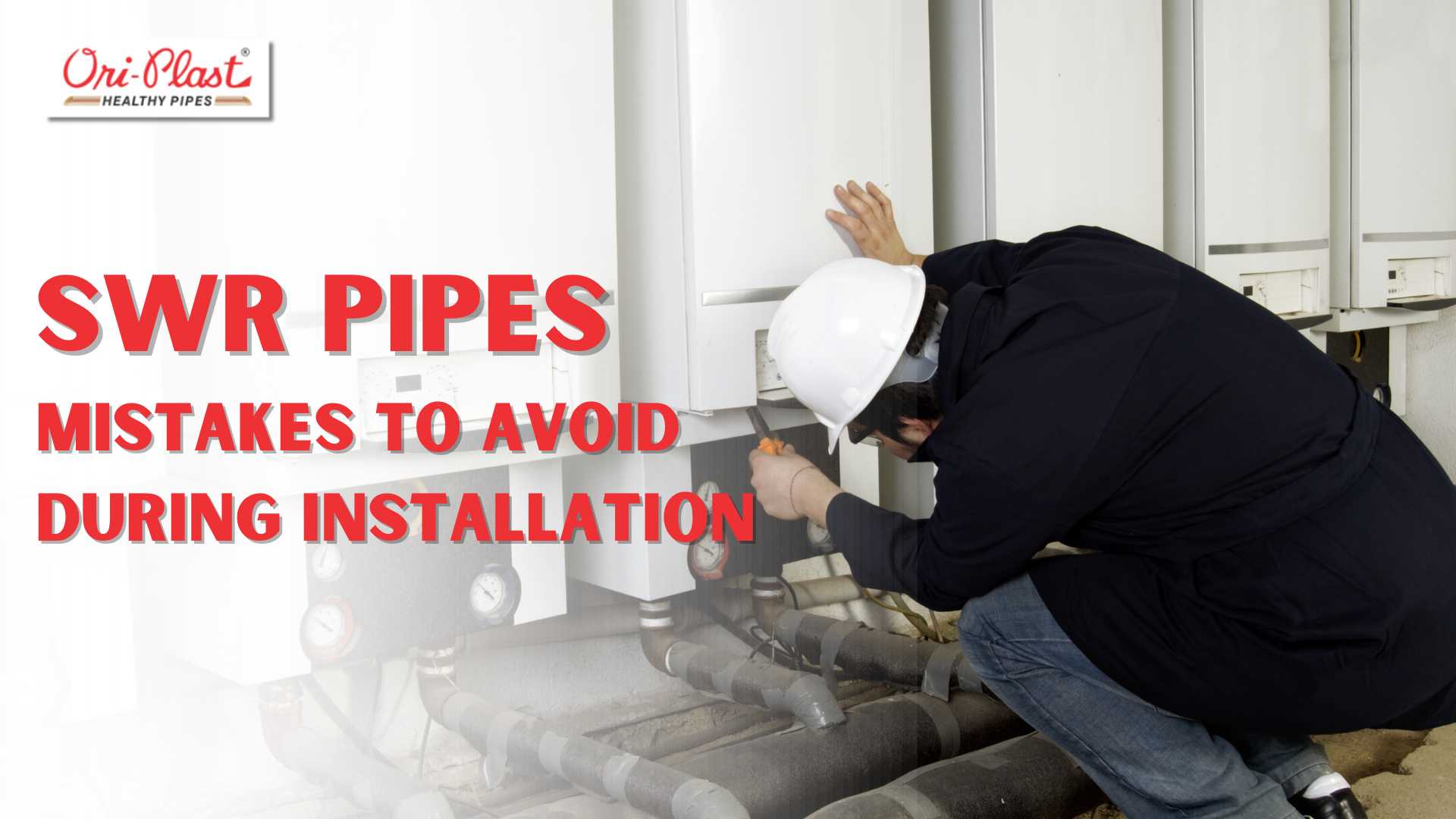SWR stands for Soil, Waste, and Rainwater. SWR pipes are used for drainage and sewerage applications. They are available in different materials, such as
PVC and UPVC.
Benefits of SWR pipes
- Corrosion resistant: Made of materials that are resistant to corrosion, such as PVC and UPVC. This makes them ideal for use in harsh environments, such as those with high levels of chemicals or salt.
- Sturdy in nature: It can withstand a lot of weight and pressure, making it a good choice for use in high-traffic areas.
- Suitable for use in underground conditions: Resistant to the elements, so they can be used underground without fear of deterioration.
- Easy to install and maintain: Relatively easy to install and maintain. They can be joined together using solvent cement or rubber rings.
- Long lifespan: SWR pipes have a long lifespan. They can last for many years with proper care and maintenance.
Applications of SWR pipes
These pipes are used in a variety of applications, including:
- Domestic and commercial buildings
- Industrial plants
- Sewage treatment plants
- Stormwater drainage systems
- Rainwater harvesting systems
What is the difference between SWR and PVC pipe?
The main difference between SWR and PVC pipes is their strength. SWR pipes are stronger and more durable than
PVC pipes. They are also more resistant to corrosion and chemicals. However, PVC pipes are more flexible and easier to install.
Which is the best SWR pipe in India?
Ori-Plast is one of the leading SWR pipes and fittings manufacturers in India. They offer a wide range of SWR pipes, including pipes for domestic, commercial, and industrial use. Their pipes are made of high-quality materials and are rigorously tested to ensure their quality and durability.
How to Choose the SWR pipes?
When choosing these pipes, it is important to consider the following factors:
- The type of application: Available in a variety of grades, each with its own set of properties and applications. You need to choose the right grade of pipe for your specific application.
- The size of the pipe: The size of the pipe will depend on the amount of water or wastewater that it needs to carry.
- The length of the pipe: The length of the pipe will depend on the distance that it needs to cover.
- The material of the pipe: Available in a variety of materials, including PVC, UPVC, and CPVC. Each material has its own advantages and disadvantages.
- The price of the pipe: SWR pipes can vary in price depending on the brand, quality, and materials used.
It is also a good idea to consult with a plumbing professional to help you choose the best SWR pipes for your needs.
What are the different types of SWR pipes?
- Type A pipes: These pipes are designed for rainwater and venting applications. They have a smooth inner surface that helps to prevent blockages. Type A SWR pipes are typically blue in color.
- Type B pipes: These pipes are designed for soil and waste discharge applications. They have a thicker wall thickness than Type A SWR pipes, which makes them more durable. Type B SWR pipes are typically white in color.
A few other types of pipes are available, such as:
- Self-fit SWR pipes: These pipes have a special socket that allows them to be joined together without the use of solvent cement. This makes them easier to install.
- Ring-fit SWR pipes: These pipes have a ring that is inserted into the socket of another pipe. This provides a more secure joint than self-fit pipes.
- UV-resistant SWR pipes: These pipes are made of materials that are resistant to the sun's ultraviolet rays. This makes them suitable for outdoor use.
Conclusion
Versatile and reliable option for drainage and sewerage applications. They are available in a variety of sizes and materials to meet the specific needs of each project. Relatively easy to install and maintain, making them a cost-effective choice for long-term use.
Here are some of the key benefits of using these pipes:
- Corrosion resistant: Made of materials that are resistant to corrosion, such as PVC and UPVC. This makes them ideal for use in harsh environments, such as those with high levels of chemicals or salt.
- Sturdy in nature: They can withstand a lot of weight and pressure, making them a good choice for use in high-traffic areas.
- Suitable for use in underground conditions: Resistant to the elements, so they can be used underground without fear of deterioration.
- Easy to install and maintain: Relatively easy to install and maintain. They can be joined together using solvent cement or rubber rings.
- Long lifespan: They can last for many years with proper care and maintenance.
If you are looking for a reliable and durable pipe for your drainage and sewerage needs, then SWR pipes are a good option to consider.




